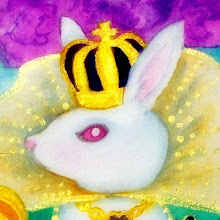In case anyone wondered, the book is definitely a book. The word count is inching its way toward 100K, but I have plans to remove a chapter that may become a standalone short story or novelette, possibly a give-away. That's actually a good thing because, inserted into the book, it seems out of place. I've spent a good while working on the timeline and calendar, rearranging some chapters, and trying to decide if I should put my chapter breaks in different places or merge chapters.
"My goal is not to write 50K. My goal is to tell the story in the number of words that it takes to tell the story."
Sometimes, a chapter break is really obvious. You have a surprising dramatic moment, and your brain tells you, "That's the right place to end that chapter." Other times, you just can't make up your mind. It could be that some things in the chapter need to be rearranged because stories, plots, sentences all have a rhythm. A cadence. You need this line to lead to that line, and when you get it right, you feel it. You may wonder why you didn't put it that way to start with, but, as we say in art class, sometimes you have to get some stuff down first so you have something to fix. Something to work with. Then you can polish and rearrange. That's basically what drafting is. Just get it down. Yes, having voice and style and all the shiny things is great, but if you have to force a chapter out, just getting down the bare bones is better than nothing at all. Then you can work with it.
Then there is chapter length. I have some chapters that are 20 pages, and some that are 3 pages. I don't really feel bad about either one. There are certain chapters with lots of details that flow seamlessly and take longer to tell. They're like major events. Then chapters get shorter as events hurtle toward the climax. I have written 20-chapter books. This one is currently just over 50. I may try to merge some of them, but only if it makes it better. Decades ago, longer chapters were the standard. Over the past few years, the acceptable chapter lengths seem to have gotten shorter, generally speaking.
On the other hand, some books in print are over 700 pages, while some are less than 200. Both seem to find audiences. For my first books, I was really concerned about word count. As I developed the story, word count became a non-issue. I remained true to the story, and the story turned out to be long enough to fit what was considered a novel for that age group.
I think this is why I don't worry about reaching 50K words. When I used to try to write short stories, I was told that my ideas were novel ideas, not short story ideas. They had too many facets to squeeze into a short story. Just because a story is shorter than a novel doesn't mean that it's easy to write.
My goal is not to write 50K. My goal is to tell the story in the number of words that it takes to tell the story. This is not to bash NaNoWriMo or participants in any way. Some writers benefit from the challenge and group setting. Some writers need the boost to reach that goal. If NaNoWriMo works for you, then go for it. For me, personally, competition has never been a motivator, and I found it having the opposite effect on me, kind of like how reverse psychology never has the desired effect on me.
I will add that my writing in this book is far more relaxed than the
first. I'll be cleaning it up more before the release, but I like
colorful details that make a place or person more real. Over the past
several years, the characters have become more alive than mere figments
of my imagination. I want them to be more than stereotypical characters
in the mind of the reader.
TTFN



.jpg)

No comments:
Post a Comment